Social contribution
Cellnex is strongly committed to contributing to society, working together with charities, financing projects, volunteering, etc. In this regard, many projects by Cellnex aim to make its knowledge and technology available to society.
Owing to the large number of social projects that Cellnex develops in each of the areas in which it operates, Cellnex has been working for a long time to establish its own foundation to organise and give visibility to all the social initiatives developed by the company.
Cellnex’s COVID-19 Relief Initiative
As in previous years, Cellnex showed its commitment to the welfare of society through several donations. However, because of the public health crisis caused by the COVID-19 pandemic and aware of the scale of this disruption worldwide, Cellnex took some unprecedented decisions in 2020. The company set up several collaborative projects in the countries where it operates under the “Cellnex’s COVID-19 Relief Initiative” by donating €10 million over 2020-2021.
On the one hand, Cellnex is providing five million EUR over two years to fund a research project involving cutting-edge European research teams in the field of immunotherapy to detect and obtain T-cells that fight the SARS-CoV-2 infection.




Five million euros for a cellular immunotherapy project to tackle COVID-19
This will be a multicentre project involving five cutting-edge European research teams in the field of immunotherapy.
The project is led by the Clínic-IDIBAPS Hospital together with the Banc de Sang i Teixits [Blood and Tissue Bank] (both in Barcelona), and also involves the IISGM-Hospital Universitario Gregorio Marañón of Madrid, the IRST-IRCCS of Meldola, the INSERM-U1183 of Montpellier and the IRCCS Ospedale San Raffaele from Milan.
The project aims to provide a better understanding of how the immune response to SARS-CoV-2 works and to propose new treatments based on the body’s cellular response to COVID-19 by using T-lymphocyte cells, which are part of the immune system and are formed from stem cells in the bone marrow.

The other 5 million out of the total 10 million EUR for the fight against COVID-19 have been allocated to social action projects with non-governmental organisations to assist people and groups in vulnerable situations, funding the purchase of protection equipment for healthcare staff as well as providing resources for the most vulnerable groups.
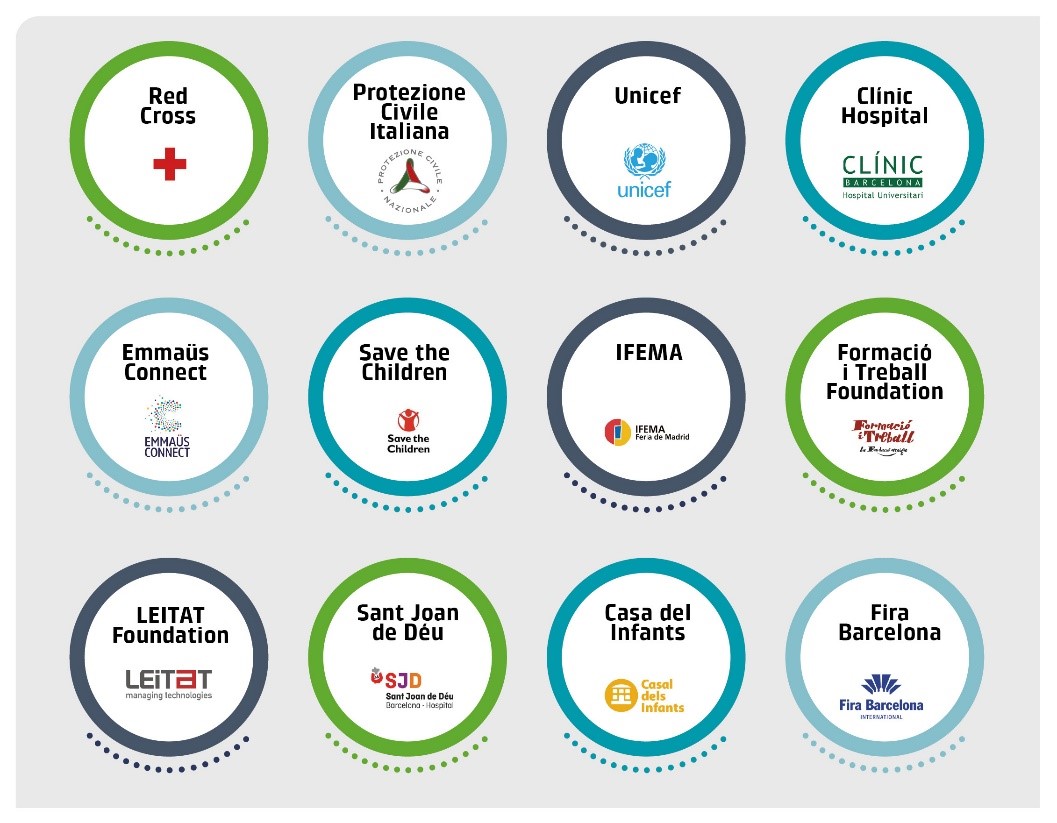

Bridging the digital divide with Emmaüs Connect
Within the project “Cellnex’s COVID-19 Relief Initiative”, Cellnex France has signed a partnership with Emmaüs Connect, which works for the digital inclusion of people, over the next two years. The partneship aims to continue and relaunch activities such as training, labour support or access to computers, which were impacted during the COVID-19 health crisis. It also includes actions in place to promote the Cellnex France employees to participate as volunteers carrying out installations, training, etc. Moreover, Cellnex is helping to find two locations to carry out the entity's activity.
In this way, Cellnex France is helping to reduce this digital divide and minimise the health, economic and social impact of the COVID-19.
Moreover, the company is working actively with various hospitals and on a technological project to develop, produce and provide a mechanical ventilation system for ICUs. In this connection, the project focuses on producing the Leitat 1 field ventilator, manufactured using industrial 3D printers in the incubator of the Barcelona Free Trade Zone Consortium, type-approved in a clinical study by the Spanish Medicines Agency and tested and functioning in Catalan ICUs.
Cellnex has played an active role in this collaboration, since it has not only supported the project financially, but also a team of company engineers specialised in Internet of Things has participated in the challenge of finding a solution that would ensure the safety and efficiency required for type-approval while gathering data from the ventilator in real time and sending it for analysis via an application.
Social projects
Access to communications
The COVID-19 crisis has underscored more than ever how vital it is for everyone to have access to a good connectivity and digital tools to remain connected to the rest of the world in this digital society. The lack of these elements only accentuates the isolation and sense of exclusion of people in difficulty.
Faced with this scenario, Cellnex, as a telecommunication infrastructures operator, works to bring connectivity even to rural areas without incurring high costs through 5G.

Zero-Emissions Rural Site
The project arose by studying communication between vehicles at Cellnex's Mobility Lab (located in the Castellolí Parcmotor circuit, in Barcelona) to increase road safety after Cellnex engineers identified difficulties in transporting energy, therefore the deployment of all this technology in rural areas required an ad hoc energy solution.
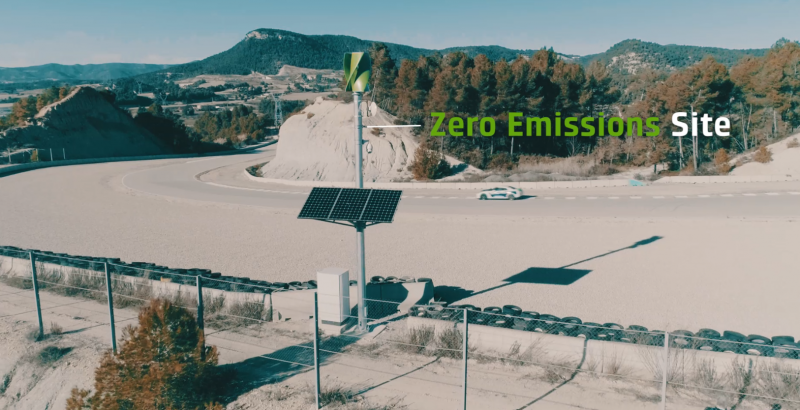
Such a technology would allow connectivity on the road and serve populations that are practically technologically isolated. Areas without road coverage, normally coincided with municipalities with fewer than 20,000 inhabitants. Therefore, this project would boost activity in the area and keep them from being disconnected.
There are other projects in Spain to bring connectivity to rural areas, such as in Matanza de Soria (Soria) where Cellnex Telecom, Nokia and Quobis, in cooperation with MásMóvil, have developed the 5G-Lean project. The system uses a simpler, more lightweight and economical telecommunications infrastructure using state-of-the-art antennas to provide service efficiently to areas of special interest with a model that is easy to install and to roll out.
Cellnex Ireland
Similarly, in Guadalema de los Quintero, a district of the municipality of Utrera (Seville), Cellnex has rolled out a 5G Fixed Wireless Access (FWA) solution which would be equivalent to a high-speed fibre connection, but via the mobile network.
The project is part of the Red.es 5G pilots in Andalusia led by Vodafone. The project includes 32 use cases in different areas such as digital transformation, agriculture or healthcare. Cellnex collaborates in four specific projects related to 5G, Fixed Wireless Access, crowd security and autonomous harvesting.

Network with Irish local communities
Cellnex Ireland has identified low connectivity areas (black spots) and is working together with the local community to improve the connectivity of the area, such as in Co Kerry or Kilkenny. To this end, Cellnex Ireland’s sites are being used in the implementation of the National Broadband Plan and supporting the roll-out of Business Connection Points (BCPs) to deliver free high-speed internet access in some of the most isolated and rural communities in the country.
During 2020, Cellnex Telecom invested over €10m in new telecommunications infrastructure with the remaining additional investment during the year on the enhancement of existing sites, supporting the delivery of improved mobile and wireless broadband coverage to over 100 communities as workers and families struggle with working and schooling from home due to the COVID-19 pandemic
In addition to promoting the connectivity of the territories, Cellnex wants to connect people, especially people and collectives at risk of social exclusion. One of the most important projects in this area is one that provides connectivity to social housing.


Providing connectivity to social housing at Casa Bloc
Cellnex Telecom and Hàbitat3 Foundation provide Internet of Things (IoT) connectivity and sensorisation technology at Llar Casa Bloc, a social housing project built between 1932 and 1936 located in the city of Barcelona. The Fundació Hàbitat3 is an organisation that manages social rental housing.
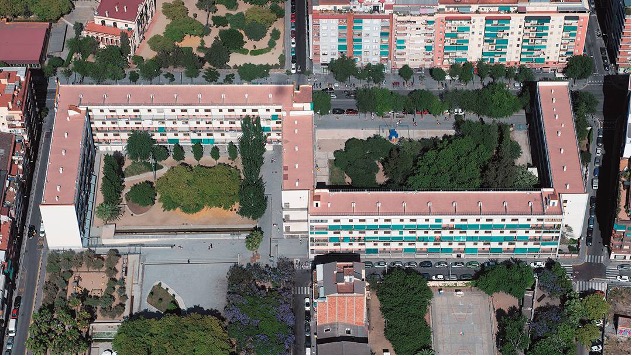
Cellnex’s participation in this project involves providing connectivity infrastructure, installing home electricity meters, hot and cold-water meters, heating systems and temperature, humidity and CO2 sensors. Moreover, all homes will have Internet connection (wi-fi) and reading tablets to display consumption. All of this will allow residents to monitor their energy consumption and improve comfort in these houses.
The Casa Bloc residence will house 17 social rental housing units home to around 45 people with mental health problems and / or addictions, homeless persons, or those in a situation of residential exclusion.
Quality education and digitalisation
Quality education is one of the biggest global challenges. 103 million young people around the world lack basic literacy skills, more than 60% of whom are women according to the study SDG 4: the role of companies in achieving quality education drawn up by PwC and Seres Foundation.
According to this study, the technology sector is among those most intensely affected by the talent deficit problem. In this context, companies must take on the commitment to develop solutions to improve education from their great capacity for transformation and collaboration with other actors.
In this regard, Cellnex not only promotes internal training, contributing its knowledge and skills, but also supports academic institutions and public administrations to offer quality education for all.
Collaboration with ESADE Foundation
Cellnex has signed a collaboration agreement with the ESADE Foundation, linked to one of the most prestigious business schools in Europe, to contribute to its Scholarship Fund to cover the scholarships of two ESADE students during the academic years from 2020-21 to 2023-2024.
The incorporation of Cellnex into this program responds to the company's commitment to collaborate with the progress of society by training young people. With the “Cellnex scholarship”, the company joins the effort made by ESADE to promote equal opportunities and inclusion, eliminating any economic barrier in access to training for young people.
Collaboration with the BEST Foundation
Cellnex made a commitment to the Barcelona Engineering and Economic Studies project this year as a sponsor company of the BEST Foundation. This new inter-university degree offered by the Polytechnic University of Catalonia (UPC), Pompeu Fabra University (UPF), Barcelona Global, and FemCat aims to train highly skilled engineers to address the challenges of a continuously changing society and equip professionals who are interested in business leadership. Cellnex will sponsor two students in a four-year commitment.
IESE
Cellnex has been an IESE sponsor company since 2017 and is involved in various projects run by the Public Sector-Private Sector Centre of the Business School.

Volunteers and Youth Challenge
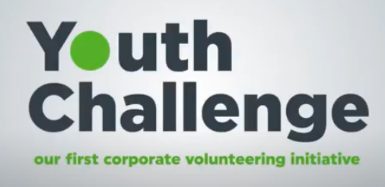 During the academic year 2019-2020 a group of 66 volunteers participated as coaches in Youth Challenge, an initiative with young people at very high risk of social exclusion in Barcelona that aims to reduce school dropout rates and promote youth employability.
During the academic year 2019-2020 a group of 66 volunteers participated as coaches in Youth Challenge, an initiative with young people at very high risk of social exclusion in Barcelona that aims to reduce school dropout rates and promote youth employability.

The Cellnex volunteers were responsible for running a mentoring process, offering students a direct connection to the world of work to encourage them to continue studying and increase their employability through 800 hours of training and mentoring and other activities such as visits to teaching centres, lectures or workshops. They also took part in mentoring sessions focused on improving self-esteem, looking to the future and fostering STEM (science, technology, engineering and maths) vocations.
Following the success of this edition, in which 89% of students declared that the coach helped them to continue studying and 100% of the volunteers would repeat, the programme will be extended to Madrid and Rome and an online option made available.
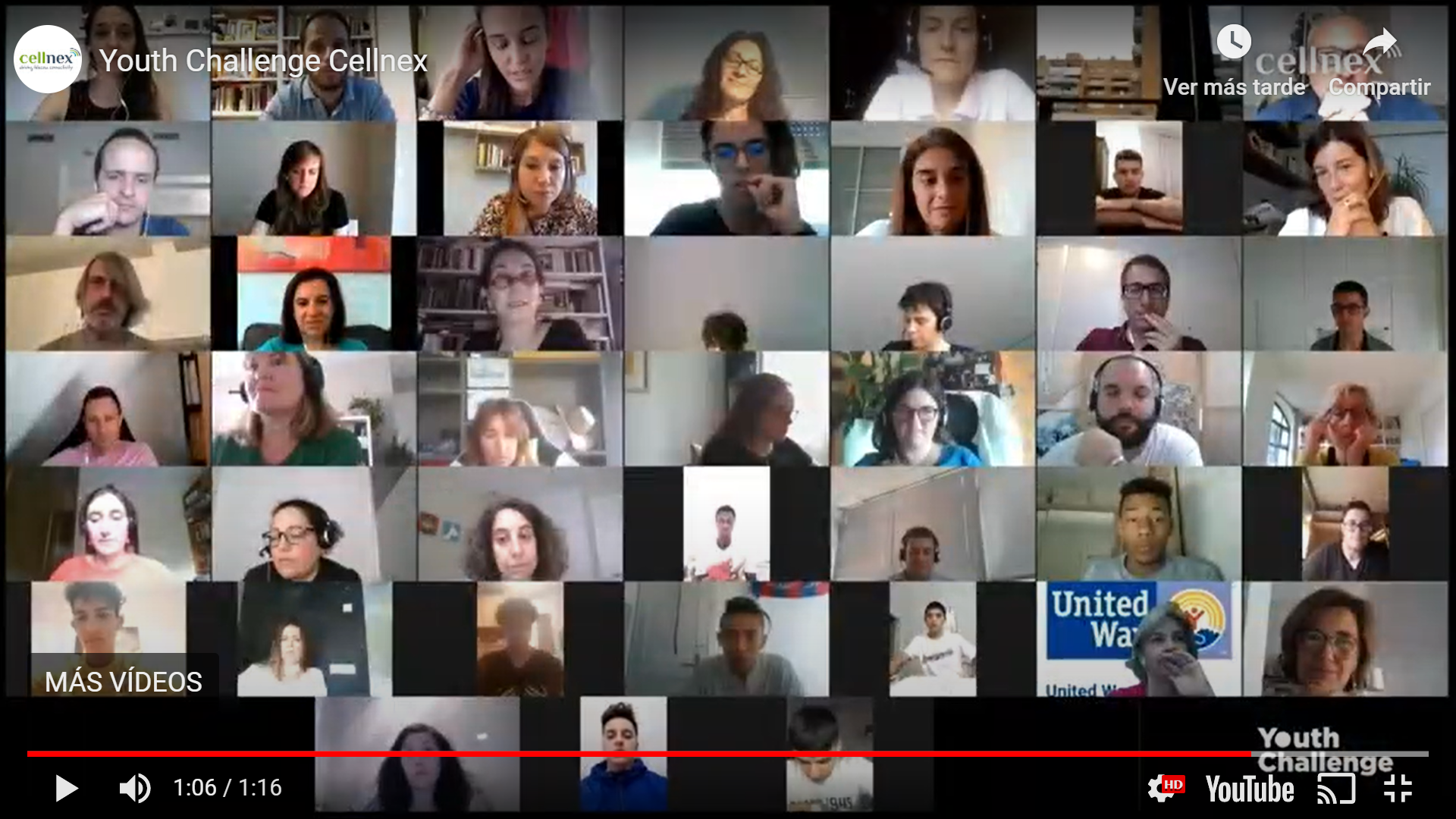
Furthermore, during 2020, Cellnex supported university talent by taking part in four parallel OnCampus entrepreneurship programmes hosted by four universities: UAB in Barcelona, UdL in Lleida, URV in Tarragona and UdG in Girona. The initiative is coordinated in collaboration with Catalan universities and research centres.
The training is designed for early-stage technological projects with the main objective of validating their market application together with industry experts, such as Cellnex, using Lean Launchpad methodology.

Enterprise Challenge 2020
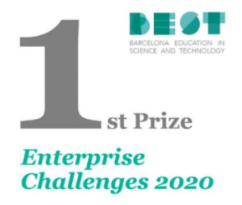
Cellnex participated in the initiative, sponsoring the project of four students in the annual Enterprise Challenge organised by the BEST (Barcelona Education in Science and Technology) Foundation, which fosters Open Innovation through collaboration between companies and universities.
To that end, Cellnex selected four degree students that created an application in a short time to optimise waiting times for non-critical patients in overstretched and overcrowded A&E departments. The team sponsored by Cellnex won the first prize, obtaining 88 of the 100 points available.
Moreover, Cellnex is working together with MasMóvil on a project to install a test 5G mobile network at IESE Business School. The prototypes deployed by Cellnex will integrate 5G, Edge Computing and Augmented Reality.
This project will revolutionise the educational experience on the campus using VR to broadcast a session recorded in 360 degrees with 4K resolution to thousands of 5G mobiles, creating new learning experiences combined with virtual objects, or designing real-time simulations for work teams.
Other initiatives

As part of its social commitment, Cellnex promotes other projects in collaboration with different organisations such as Seres Foundation, Cancer Fund for Children or Best Foundations.
One of the main initiatives in this regard is the “Solidarity Euro”, a Project initiated in Spain and then launched globally under the name of Solidarity Gift. In this project, Cellnex Telecom collaborators are invited to donate one EUR (or equivalent) per month from their payroll. After two years, participants can propose social projects in their countries to which they would like the accumulated money raised to be donated. A campaign will be organised to select which of the various projects proposed in the business unit will receive the money raised. The initiative has now been upgraded with a Matching Gift in which Cellnex will match the contribution made by employees.
In 2020, employees of Corporate and Cellnex Spain made more than 600 donations. Cellnex donated the same amount collected by employees indistinctly to three foundations with which it works in Spain: Banco de Alimentos [Food Bank], Fundació Juvanteny and Fundación Madrina.
This initiative raises funds to help social causes with micro-donations of one EUR a month from volunteer employees, something that would be impossible if done individually.
Beyond this initiative, some countries collaborate with international and local organisations, increasing their commitment to society and promoting a more sustainable and inclusive environment.

Collaboration with Irish charities
Cancer Fund for Children and Barnardo’s were the preferred charities chosen by the entire staff of Cellnex Ireland for the company to support in 2020.
Cancer Fund for Children are a team of specialists that provide a range of practical, financial and emotional support to families affected by cancer, at home, on the hospital ward and in the community while Barnardo’s supports children whose wellbeing is under threat, by working with them, their families and communities and by campaigning for the rights of children.
To celebrate one year in business in Ireland, the company shared a webinar with its stakeholders to give an overview about Cellnex Ireland’s plans. As part of the event, Cellnex Ireland made a donation on behalf of every attendee at the webinar to these charities.
Seres Foundation
The company worked with the Seres Foundation, whose stated aim is to "Build a healthier, stronger society with competitive businesses that can stand the test of time". The foundation aims to foster and promote strategic business actions that contribute to an overall improvement in the social situation. Cellnex has signed an agreement pledging to work with the Seres Foundation, disseminate their joint work, share knowledge on good practices in social matters, and attend meetings with partners and other social entities.
Barcelona Climate Plan
Participation in co-producing the Barcelona Climate Plan with Barcelona City Council, which sets down all ongoing and planned actions related to climate change in the city. Cellnex draws up proposals within the company and takes part in the debate on the proposals submitted by all participants.
TV3 Telethon
Cellnex has been taking part in the TV3 Telethon for more than 10 years. The Telethon Foundation aims to foster and promote biomedical research into and social awareness of diseases for which no cure has been found. The money raised is used to research new methods of prevention, diagnosis and treatment for minority diseases.
In 2020, due to the exceptional situation, and in view of the need for progress in research into COVID-19, the Board of the Foundation took the exceptional decision to change the theme that was planned for La Marató 2020 and dedicate it instead to COVID-19, moving the edition on mental disorders to 2021.
The Cellnex Foundation
Management System Director Cellnex Telecom
In December 2020, the Board of Directors approved the creation of the Cellnex Foundation, in response to the firm desire of Cellnex Telecom to take a further step towards contributing to an environment that is better connected and socially responsible as a comprehensive initiative to complement the Corporate Social Responsibility of the company.
This complementarity and coordination are carried out by means of a flexible structure adapted to the needs of the environment and the scope of the foundation. The aim is to align actions and take advantage of synergies and resources.
The Cellnex Foundation is born with the clear mission of being a dynamic tool at the service of people with a view of making a significant contribution to transforming realities:
- Leveraging the knowledge generated and resources available in the corporation, aimed at fostering positive changes to the lives of people and the environment in a stronger and more direct manner, especially with and for people in a situation of special social vulnerability.
- Using connectivity effectively as a key component for intervention, working to improve the inclusion of people in a growingly connected environment so that nobody is left “disconnected” based on a principle of social equity, while also working actively to build sustainable actions at all levels that have a positive impact on the lives of people and on the environment.
The Cellnex Foundation was created as a social foundation and places people in different conditions and in vulnerable situations at the central of its activities.
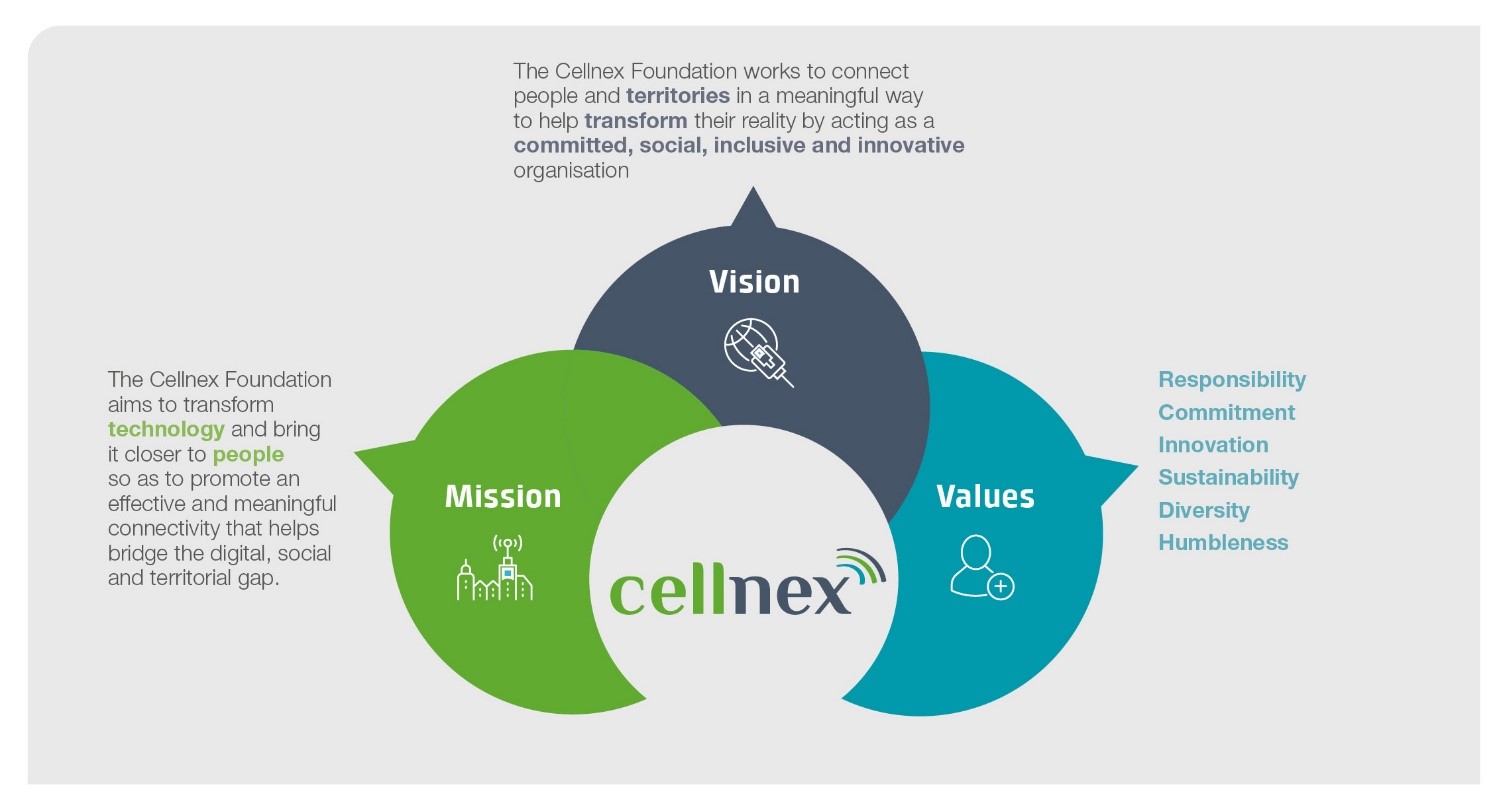
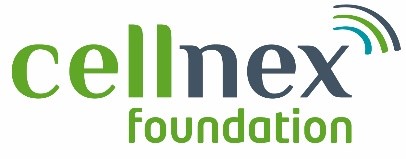
The Cellnex Foundation articulates its model of social contribution around four pillars:
Flagship programme: The main programme led by the Foundation and focused on rural/special environments to meet the challenges arising from the digital, social and territorial gap to help improve social and territorial cohesion and quality of life.
- Joint programmes: Projects carried out in collaboration with strategic actors to promote joint actions with an impact on the ground and coherent with our foundational framework
- Corporate volunteering: Project focused on involving employees and former collaborators of Cellnex in corporate volunteering initiatives that benefit people and the environment and are aligned with the Foundation’s strategic lines. It is considered a main pillar of Cellnex's contribution model Corporate Volunteer program will focus on education, employability and access to technology programs. The Foundation will continue with Youth Challenge in Spain and Italy and will launch other specifics activities in Cellnex countries.
- Eventual funding: Programme for the eventual funding of external projects carried out by other entities, with a system of indicators to select projects based on their impact and aligned with the Foundation’s mission.
The Foundation has the purpose of promoting actions aimed at people and entities through technology and telecommunications, such as innovation, connectivity, reducing the digital gap, mobility and the Internet of Things -IoT -, among other. To this end, the Foundation will focus on the challenges arising from the three gaps: Digital gap, Territorial gap, and Social gap. From these three identified gaps, four fields of intervention have been established:
- Technological solutions to improve quality of life and sustainability: programmes to provide digital tools and resources and offer new services to people, social organisations and SMEs with a social, territorial and environmental approach to improve their work while contributing to preserve the environment effectively and sustainably. The gaps involved are Territorial and Digital.
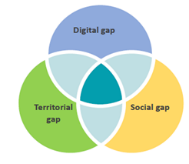
Digital capacity-building: capacity-building actions aimed especially at disadvantaged groups so they can improve their digital skills, boost their confidence, their relational skills and employability. The gaps involved are Digital and Social.
- Tackling social inequality: measures that contribute to relieve situations of social and inequality by supporting and following highly complex local environments. The gaps involved are Social and Territorial. .
- Promoting talent and innovation: programmes and actions focusing on using knowledge and talent to serve innovative social needs and contribute to improving the quality of life and boosting professional careers to STEM. The gaps involved are Digital and Social.
The challenge of digitally and effectively connecting people and territories contributing to the achievement of following SDGs:
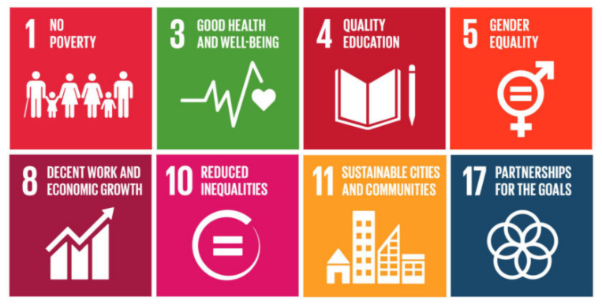
The Cellnex Foundation plans to formalise its statutes and begin its activities in the first quarter of 2021.

